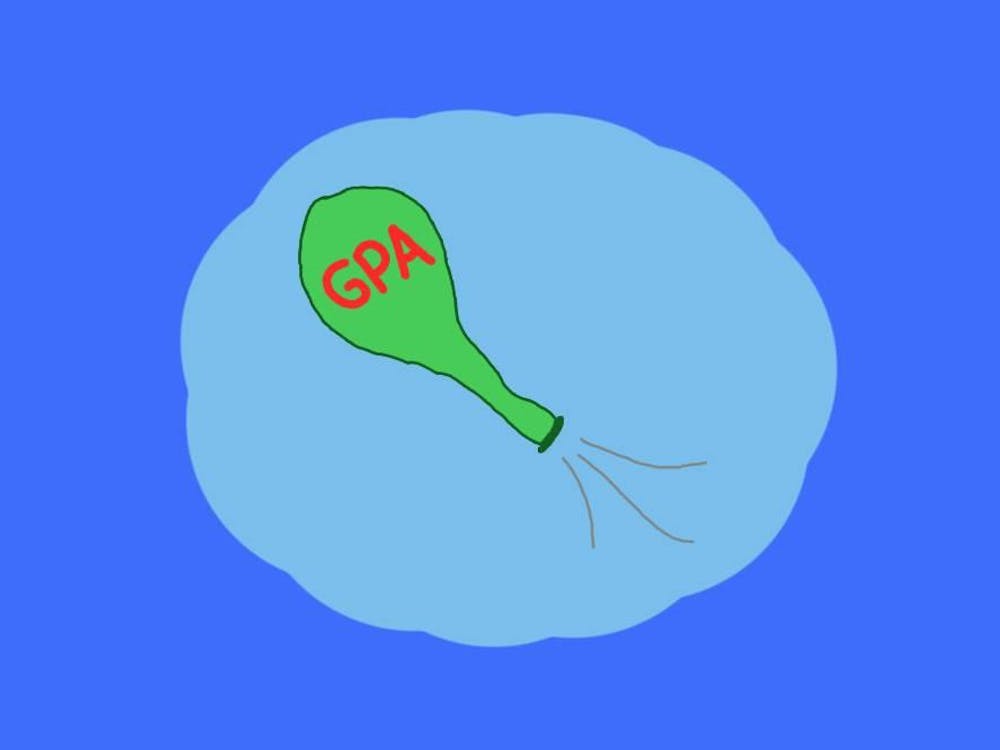THE TIMES, they are a-changin. Reform movements are sweeping the globe, new leaders are coming to power, and the people are crying out for a change. But have they asked themselves why?
A Reader's Digest version of recent events said that in Iran, 70 percent of the seats in parliament went to reformers - those supporting the politics of suppression and isolation were kicked out of office, and the newcomers were given a political mandate to enact real social change.
In Austria, two reform movements with opposite goals have erupted on the international scene. Last October, about 27 percent of the electoral votes went to Jeorg Haider's Freedom Party - a far-right, almost fascist group that suggests Hitler wasn't all bad. When the Freedom Party became a segment of the new coalition government, the second, belated reform movement stepped up, asking Austria to leave the old, anti-Semitic ways behind them. The streets are in an uproar, as is the rest of Europe - even the European Union has gotten in on the act and is boycotting Austria.
In the U.S., "reform" propaganda is everywhere. Both Republican candidates have adopted it as their own personal mantra. They ask, do you want to vote for "the real reformer" or "the reformer with results?" without stopping to ask if and why voters want to reform in the first place.
But what does reform really mean? Webster's defines it as "a change or improvement, especially in social institutions." Accepting this begs an obvious question: improvement for whom?
Rarely does social policy deliver the promised improvement. Iran's recent move is an obvious step towards reform: The candidates promised to lift many social restrictions, including regulations on dress and personal freedoms.
Though such ideas may offend some, the grand majority of the world is willing to admit that more civil rights are better than less. In addition, they have promised to open a bit to the outside world and reform formerly isolationist policies - a plan that probably will be a good move for Iran. If they can step into the global marketplace, their economy can benefit. Shared technology can make domestic life better as well.
Haider's ideas for reform, however, are neither clear-cut nor a good choice for Austria. Washington Post writer Melanie Sully calls Heider's eloquence dangerous, and says he has a "genius for adaptability" ("Beyond the Backlash," The Washington Post Feb. 20, 2000). As a result, he has nothing resembling a consistent policy - no one really knows what he stands for. He is a chameleon, and adapts his rhetoric to the needs of any one party at any on time. Heider is not a leader; he's an empty promise.
But what about the U.S.? Politicians here are infamous for empty promises, otherwise known as campaign slogans. Any halfway-aware American who's turned on the television in the past few months probably could tell you that both Sen. John McCain (R-Ariz.) and Texas Gov. George W. Bush (R) are advocating reform. But could they tell you what reform? Chances are the average citizen automatically would jump to one issue he is concerned about, and tell you that the candidate he happens to like supports reforming it.
The problem is not an ethos of reform - there is, after all, always room for improvement. But that pesky question still remains: improvement for whom? One man's reform is another unwilling man's tax dollar. What's really happening is what's happened in every political campaign ever enacted: Each side presents its issues and plans to shift things, and whoever can get the most people to agree, wins. It's not reform, it's just the continued march of history.
So why call it reform instead of simply an election platform? Because "reform" has a connotation even Webster's can't explain. Today's citizen of the world is more informed than ever. He knows what's going on in his country and probably in several others. He probably also has an opinion on the issues, and his own opinion on reform.
To get elected, a candidate must appeal to as large a group of people as possible. The problem is, every voter is also an individual with individual concerns and individual opinions. Problematic, but easily solved: As long as the candidate sticks to generalities and simply promises to reform the system without specifically saying how, she allows her voters to project their ideas onto her public image. She can be everyone's reformer without matching everyone's political platform.Gone are the days of electing someone honorable and trusting him to do his job. Now people want to hear a candidate say he will help them and them specifically - their family, their taxes, their dog. All they know is that there's something they want changed, and by golly, their candidate is just the one to do it.
Viktor Orban, the Prime Minister of Austria, said that the election of Haider's party made him reflect on "the deeper meaning of democracy." He did not say if he'd reached a conclusion. Perhaps there is no conclusion as yet; instead we may need a dawning realization that no president can please all the people all the time. When electing a president, we should take the issues into account, but the true measure of a president is not his plans for reform, but his ability to protect and inspire a nation.
(Emily Harding's column appears Fridays in The
Cavalier Daily.)




